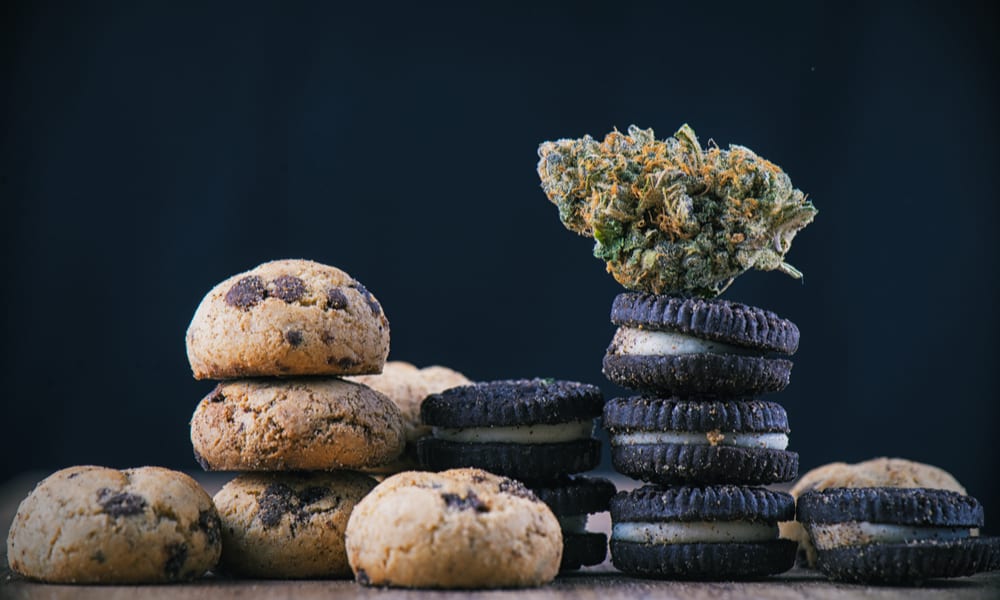Edibles are cannabis-infused foods or drinks. They deliver cannabinoids to the body through the mouth and digestive system and are generally an alternative to smoking or vaping cannabis. Edibles containing tetrahydrocannabinol (THC) will cause a similar high or euphoric feeling as smoking cannabis. In some ways, edibles are a more potent way to deliver these cannabinoids. Research shows that the effects from an edible take up to about 1 hour to kick in but can last for 6 or more hours. In contrast, the effects of smoking or vaping THC tend to last 1-4 hours. In comparison with smoking or vaping cannabis products, edibles are slow to produce effects. It takes some time to notice the effects of an edible, whereas the effects of smoking or vaping THC products are almost instant. Eating an edible means that the active ingredients, such as THC, have to go through the digestive system to reach the bloodstream, rather than the lungs. This process takes time. In general, it is likely that the high from an edible will last for a few hours. However, it is not uncommon for the high to last up to 8–12 hours if the person is sensitive but only about 4 hours if the person has a higher tolerance. Edibles can come in doses as low 0.5 milligrams (mg) THC. However, many consider 2.5-5 mg of THC to be the lowest effective dose and will recommend starting with this dose if the person has never tried edibles. The average edible will contain 10-15 mg of THC. These doses are generally effective for a person who is used to cannabis and wants to feel the effects of the edible for a few hours. A very high dose begins at about 20 mg of THC. Doses this high are generally not a good idea, as they may increase the risk of some unwanted effects from taking in too much THC at once. However, some heavy smokers or people who are used to taking very high amounts of THC may use a very high dose edible to experience stronger or longer lasting effects.
(Credits: www.medicalnewstoday.com)


1586261487.jpg)